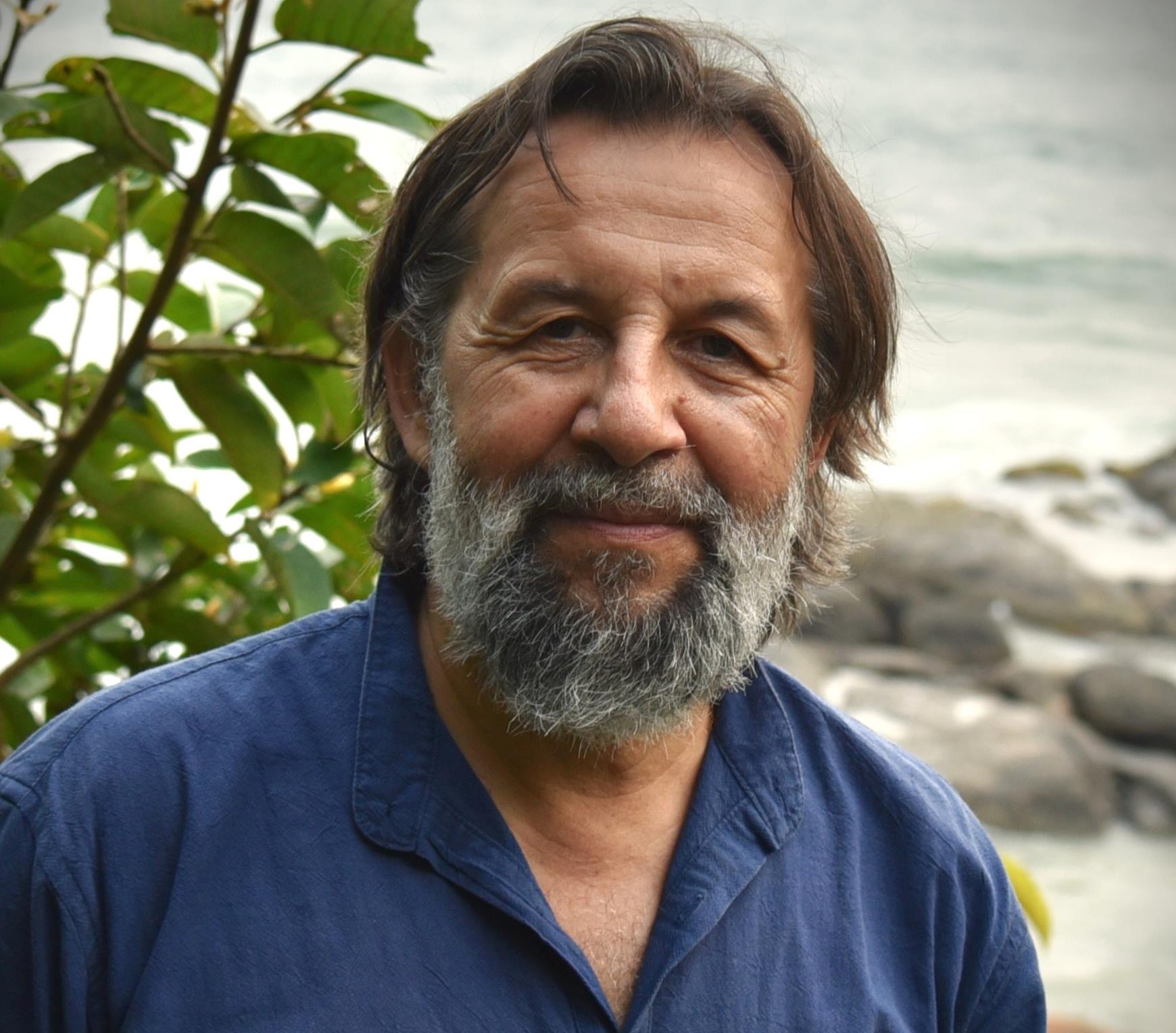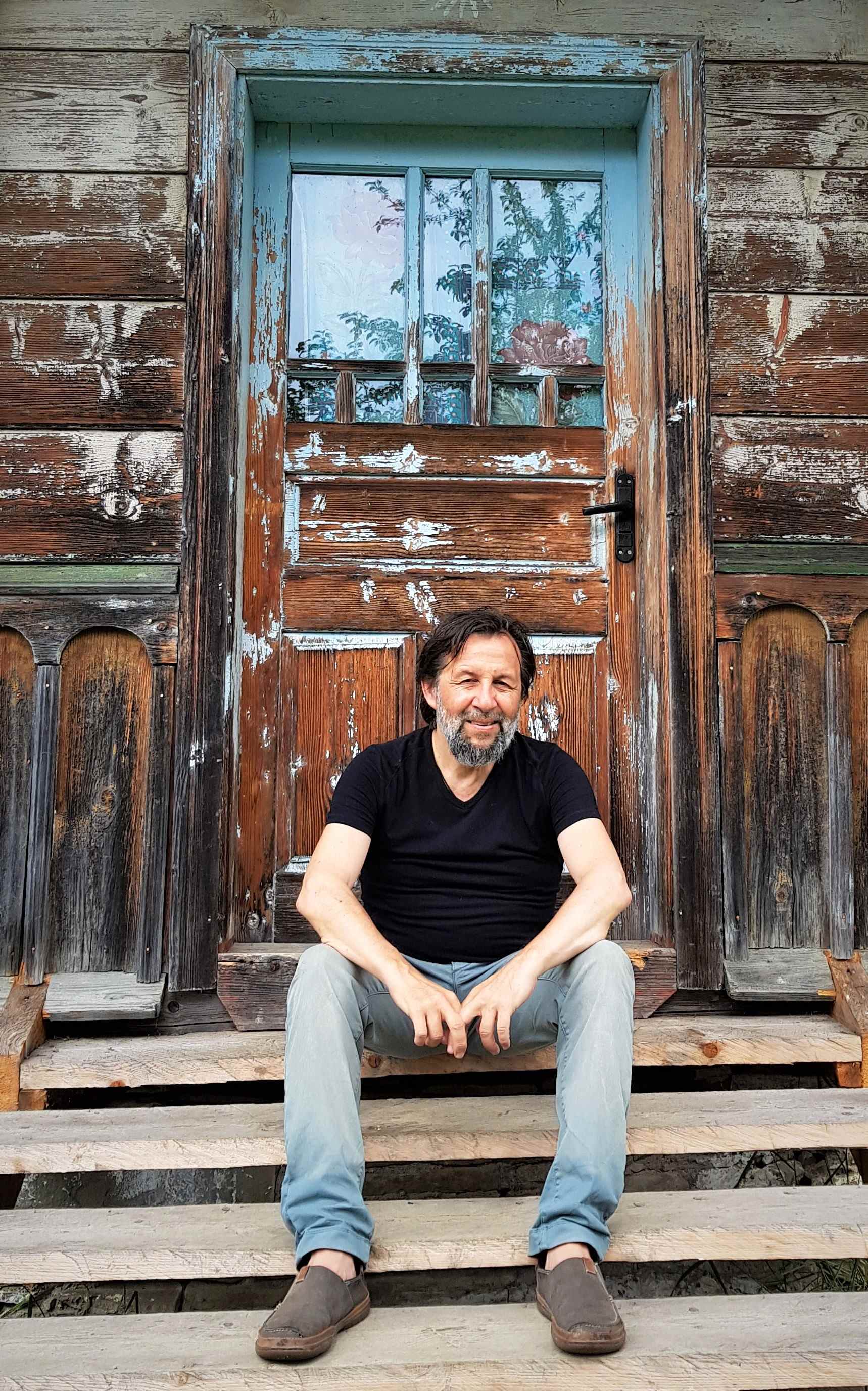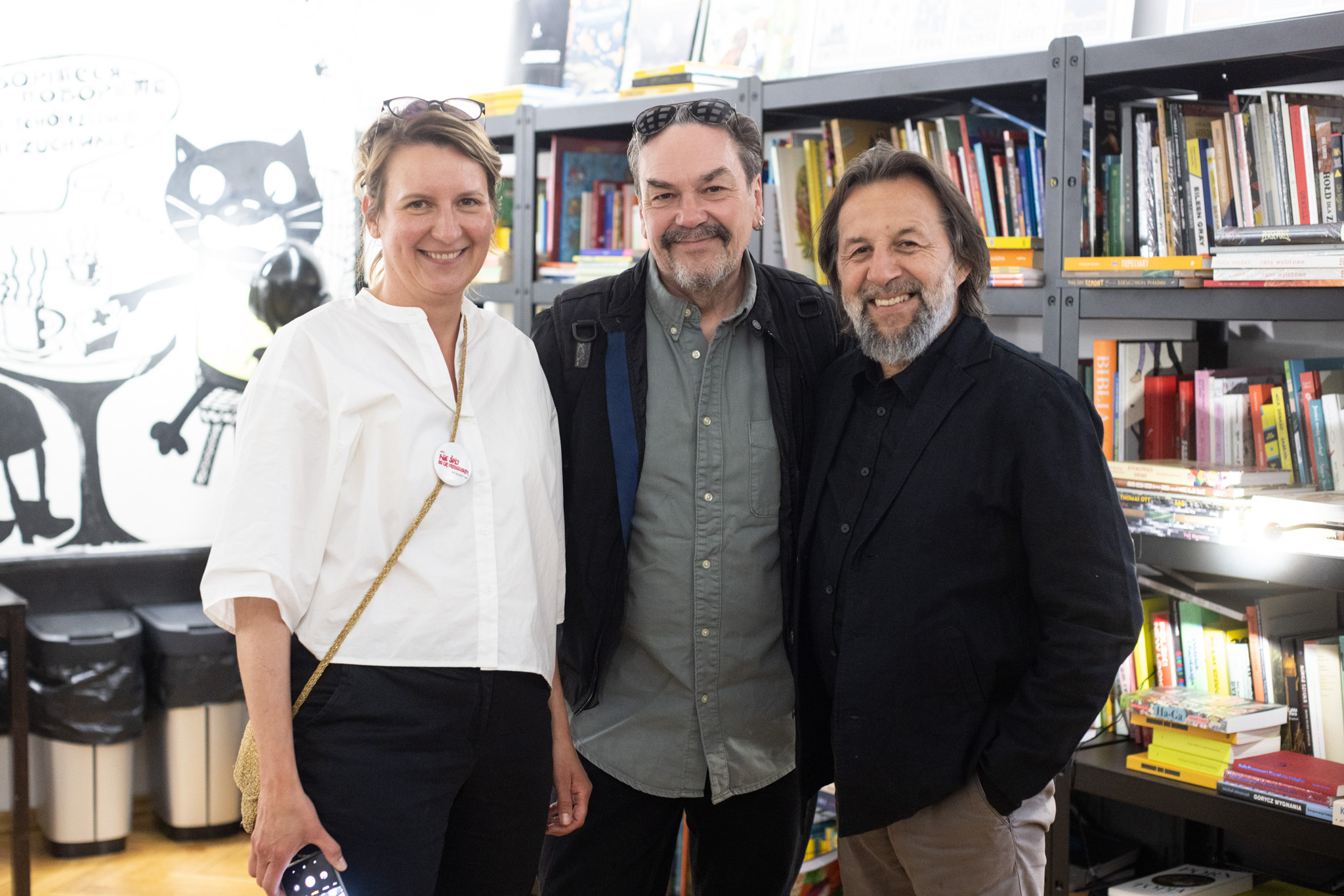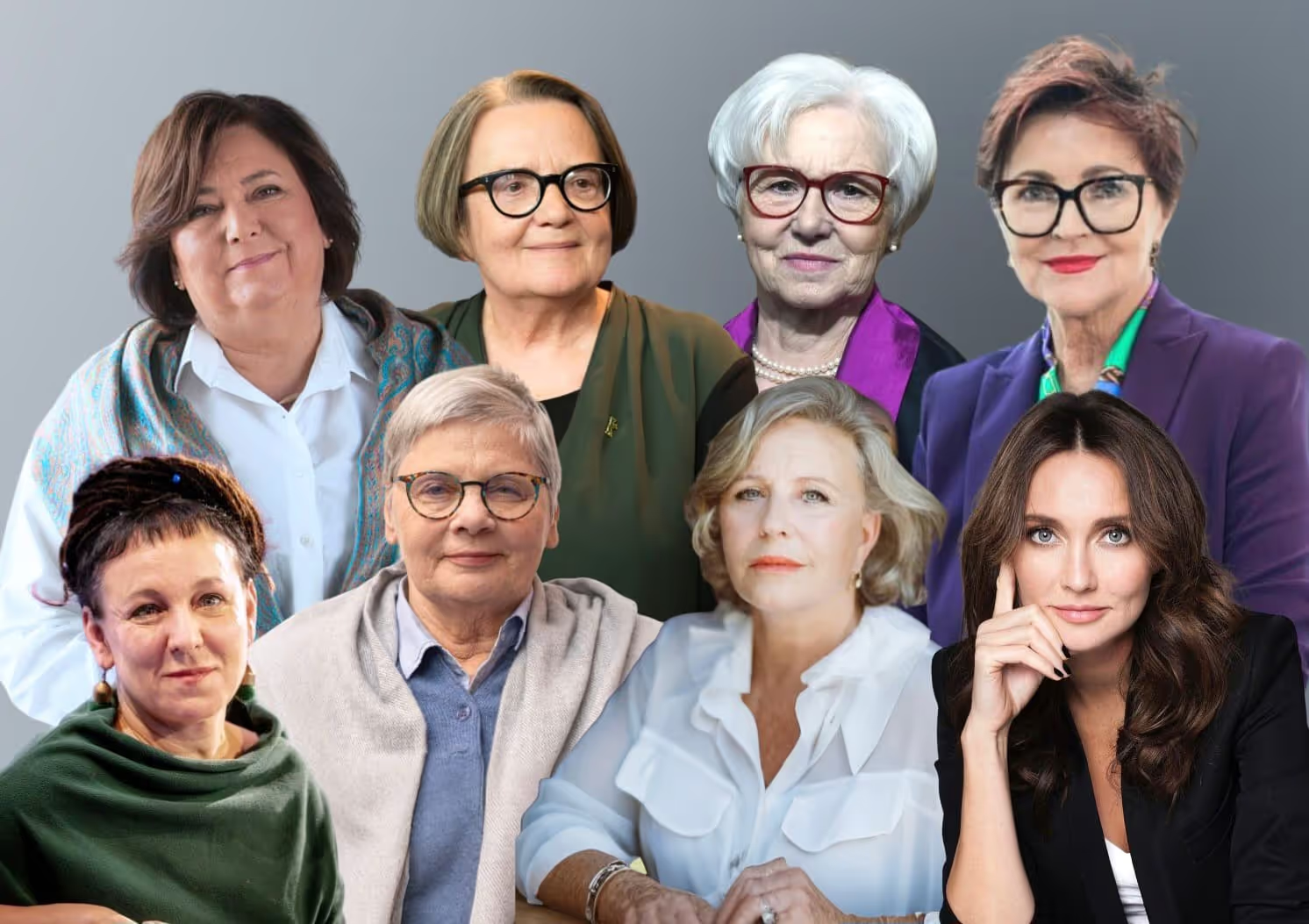Support Sestry
Even a small contribution to real journalism helps strengthen democracy. Join us, and together we will tell the world the inspiring stories of people fighting for freedom!
Traumatised by uncertainty
Olga Pakosh: How traumatised is contemporary Ukrainian society? How would you characterise it?
Michał Bilewicz: We cannot say that the entire society suffers from PTSD. If that were the case, people would likely struggle to function normally. Let me remind you that PTSD symptoms include persistent flashbacks, intrusive thoughts about war and the inability to concentrate on anything else. Meanwhile, we see that the Ukrainian state is functioning - the economy is operating, and daily life goes on.
Ukraine increasingly resembles Israel - a society living under constant threat.
Israeli psychologist Daniel Bar-Tal described this phenomenon as an «intractable conflict», where society adapts to continuous conflict, accepting it as a natural state of affairs. He also wrote about the «ethos of conflict», referring to how societies grow accustomed to living in a state of war.
What does this look like in Israel? When I visited, I was always struck by the fact that every flat has a safe room that doubles as a bomb shelter. Residents go to this room whenever an alarm sounds. After all, the advanced Iron Dome missile defence system is not entirely foolproof - missiles occasionally hit homes.

It seems that Israeli society has adapted to living with war. On the one hand, it functions normally, but on the other, conflict is a constant presence. We are not only talking about the war in Gaza but about a phenomenon that, with some interruptions, has persisted throughout modern Israeli history. As Bar-Tal points out, this situation erodes social trust and influences attitudes towards international politics - people are reluctant to seek alliances and agreements with other nations, feeling that the world is hostile and untrustworthy.
For Ukraine, the key objective is to join European structures - the European Union and NATO - as quickly as possible. This could ensure Ukraine’s future security and stable economic functioning. However, for this to work, it is essential to avoid slipping into the mentality typical of societies accustomed to war.
Since 2014, Ukraine has been in a constant state of war, with varying levels of intensity, and this is extremely dangerous. Therefore, I would describe Ukrainian society as one that is, to some extent, adapting to life in wartime conditions.
- The war in Ukraine has opened up vast areas for research in social and clinical psychology. No doubt you have been following these studies. Have you encountered anything surprising? Have you conducted joint studies with Ukrainian institutions?
- We have conducted two studies. Together with Anna Hromova, a PhD candidate from the Institute of Social and Political Psychology at the National Academy of Pedagogical Sciences of Ukraine, we examined almost five thousand Ukrainian refugees living in Poland to study the prevalence of post-traumatic stress disorder (PTSD) and the degree of trauma. We also looked into how living conditions in Poland affect the development of PTSD symptoms and reflected on whether post-migration experiences might intensify trauma, and if so, in what ways.
As you may recall from the book, I was surprised by the findings of previous research, which showed that PTSD rates in Poland ranged from 20 to 30 per cent. For example, in studies conducted in Silesia after the floods, 30 per cent of the population exhibited PTSD symptoms. Even among students who visited the Auschwitz museum, 15 per cent were diagnosed with PTSD. These numbers have always been exceptionally high.
In our study of Ukrainian refugee women in Poland, we found a PTSD rate of 47 per cent. I must say, I have never seen such a result in my life. This is indeed a very high level of trauma
It is a consequence not only of the traumatic wartime experiences but also of the conditions in which the refugees find themselves after migrating.
- Could you explain why the level of trauma is so high?
- Typically, PTSD studies are conducted after a conflict ends, when peace returns. In our study, we dealt with an ongoing war, where the women surveyed continue to live in a state of uncertainty. Their husbands are often on the front lines or at risk of being called up, which adds to the stress.
.jpeg)
The vast majority of these women face acculturation challenges (the process of mutual cultural influence, where one culture adopts aspects of another - Edit.) in the new society. Acculturation-related stress, including experiences or fears of discrimination in Poland, leads to more intense PTSD symptoms. It is harder for people to move past war trauma when they encounter discrimination in the country they have moved to. Therefore, it is crucial that Poland creates the most supportive environment possible for Ukrainian refugees, as this directly impacts their mental health and their ability to function well in Poland.
Of course, the intensity of PTSD symptoms also depends on individual characteristics. We noticed that people who struggle with uncertainty managed the worst. We remember how things were in the spring of 2022 - full of uncertainty and chaos. People with low tolerance for uncertainty were more prone to PTSD, whereas those who coped better with such situations were less likely to experience symptoms.
«During war trust in the government is essential»
- You mentioned two studies. What was the focus of the second one?
- The second study, which we conducted in collaboration with Ukrainians, was focused on Ukraine itself and examined how complex PTSD experiences influence various forms of distrust and conspiracy theories. I have been interested for some time in how these traumas can shape such attitudes. I observe this phenomenon in Poland as well:
Historical traumas cause people, even generations later, to continue viewing their surroundings as unreliable and to seek out conspiracy theories
It seems that something similar is happening in Ukraine. When I speak with Ukrainians, I often hear conspiracy theories about President Zelensky - for instance, that there are Russian agents among his close associates. This reflects a certain level of fundamental distrust towards politicians, which, in wartime, is very dangerous. The greater the social cohesion and trust in the authorities, the better it is for the country. Even if the authorities do not always act perfectly - and with issues like corruption in our part of Europe, we know this is sometimes the case - in a war situation, trust in the government is essential.
A similar issue relates to trust in science. We studied this in Ukraine, focusing on how much people trust health and medical services, particularly regarding vaccination. We found that people with stronger PTSD symptoms tend to have less trust in science. We are not yet certain in which direction this correlation moves - this is preliminary research - but we are interested in whether war experiences and trauma impact overall distrust or if people simply lose trust in various areas of life. This is a quite dangerous phenomenon, and it often arises in wartime conditions.
- How can this trust be restored? What could help Ukrainians to endure and maintain mental stability until victory?
- Certainly, restoring a sense of agency in daily life - the awareness that what one does has meaning, that one can plan something and carry it out.
The more people feel capable, the better they will function. This is why combating corruption is so essential, as it robs people of the feeling that they have any control over their lives. They know that everything is decided for them, and they have no influence. Effective anti-corruption measures can significantly improve the mental health of society.
- Unfortunately, war poses a massive threat to that sense of agency, doesn’t it?
- War complicates this greatly, which is why it is important for people to be able to say, «Even if war hinders certain plans, at least in other areas of life, nothing can stand in my way». It is crucial to help people regain this sense, as war fundamentally destroys it, stripping away their feeling of control. It is vital that people can maintain control and agency in their daily lives.
.jpeg)
«Poland has no right to write Ukraine’s history»
- How do you think Poles' attitudes towards Ukrainians have changed since the start of the war? How do Poles perceive Ukrainians now?
- In my book, I try to counter a fatalistic outlook, as Poles tend to complain about themselves. I think Ukrainians do the same. We do not criticise ourselves when speaking with Germans or French people, but among ourselves, we often criticise one another.
Poles tend to think of themselves as biased, inhospitable, full of stereotypes. However, what we saw in the spring of 2022 was entirely different - a huge societal mobilisation to help Ukraine. People were sending money to buy weapons, purchasing food, and bringing people from the border. One in every twenty Poles welcomed Ukrainians into their homes. These were unprecedented actions.
I do not know of any other European society that has carried out such a large-scale relief effort, organised not by the government but by ordinary citizens
Of course, this was also supported by the strong networks among Ukrainians already living in Poland. It is important to remember that there were already a million Ukrainians residing in Poland at the time, who supported their relatives and friends. This was one of the key elements that made this large-scale aid possible.
At the same time, our research indicated not only significant sympathy but also strong support for aiding Ukraine, particularly in the acceptance of refugees. This was interesting, as Poles are generally not particularly supportive of refugees. Ukrainian citizens benefitted from the fact that Poles already had experience interacting with them. When we ask Poles whether they personally know any Arabs, 80 to 90 per cent respond that they have never encountered any in their lives. A similar situation applies to Romani people, with around 80 per cent of Poles reporting they have never had contact with them. When asked about Jews, 90 per cent of Poles claim they do not personally know any. However, the responses to questions about Ukrainians yield different results: even before the war, around half of Poles personally knew some Ukrainians.
A large number of Ukrainians, particularly from Western Ukraine, have been coming to Poland for years to work. Following 2014, Ukrainians from eastern regions, including Russian-speaking individuals, also began arriving in Poland. Poles became acquainted with them and observed that they were very similar to themselves. These relationships were not superficial - they were not just with Ukrainian workers in shops, but also with colleagues, and with parents of children attending the same schools as Polish children. This prepared Poles for 2022, as these refugees were no longer strangers - they were people whom Poles knew and had relationships with.
I believe that if the situation were reversed, and war broke out in Poland, Ukrainians would similarly take in Poles. Polish-Ukrainian relations are strong and mutually supportive.
It should also be noted that, before the war, there was considerable hatred directed at Ukrainians on the internet, particularly concerning the Volyn tragedy and war crimes. However, following 2022, this topic has almost vanished. Unfortunately, it is now gradually resurfacing, although these past two years have allowed us to step back from this issue.
In terms of Poles’ attitudes towards Ukrainians, enthusiasm for assistance has somewhat declined, yet the majority of Poles still believe that Ukrainian refugees should be supported and that Poland must continue backing Ukraine in the ongoing conflict. Well over half of Poles hold this view, so it cannot be said that Polish society has turned away from Ukraine and its people. We are still a long way from that.
- This is good news. However, the subject of Volyn has resurfaced, this time through the voice of the Prime Minister. Donald Tusk stated that until all details surrounding the Volyn tragedy are clarified and exhumations conducted, Poland will not support Ukraine’s path to the European Union...
- I believe this was a reaction to certain events. After Dmytro Kuleba ceased to be minister, the issue somewhat subsided. It was indeed an unfortunate comment. On one hand, I believe that Minister Kuleba spoke the truth, but as a diplomat, he ought not to have said it at that moment and in response to such a question. However, the time will come when Poles will need to raise the issue of Operation «Vistula» and earnestly confront it.
Of course, it can be argued that the actions were those of the communists, not the Polish people, that it was the communist government of a state that no longer exists. However, it is essential to remember the complex interwar politics of Poland, which discriminated against Ukrainians. I know this well, as I myself come from Ukraine. My grandmother was from Kolomyia, and my grandfather from Ivano-Frankivsk, so I am aware of what happened there before the war and of Poland’s discriminatory policies towards Ukrainians.

- How can the issue of the Volyn tragedy be resolved on both historical and political levels so that it is no longer a burden on Polish-Ukrainian relations? You summarised it well in your book: «to talk about history, but not live in it».
- Vadym Vasyutynsky of the Institute of Social and Political Psychology at the National Academy of Pedagogical Sciences of Ukraine conducted an interesting study, which he began before the full-scale war and continued afterwards. As far as I recall, he asked Ukrainians, in a large sample, whether Ukrainians caused more harm or good to Poles throughout their shared history.
After 2022, the number of people acknowledging that there were also negative events, including crimes, in these relations increased. This indicates that Ukrainians are becoming more open to discussing challenging moments in their shared history with Poles.
I pondered over why this might be. Perhaps, after 2022, Ukrainians realised just how important good relations with Poland and the West are? Politically, we see that, for example, former President Viktor Yushchenko referred to the traditions of the UPA, even highlighting some of the more controversial aspects of history, including the forces that collaborated with the Germans during the war. In contrast, Volodymyr Zelensky tends to avoid this. It seems to me that there has been a noticeable shift from Yushchenko to Zelensky in terms of which aspects of history are suitable and necessary to highlight, such as the Carpathian Sich…
- Am I correct in understanding that you suggest celebrating other stages of Ukrainian history, rather than those that may be painful for Poland?
- Exactly. When considering our history, one can always choose different elements to promote and to build one’s identity upon. Some elements damage our relations - both Polish and Ukrainian ones. If Poles were to build their identity on the history of Jeremi Wiśniowiecki, who killed Cossacks, it would not be beneficial for relations with Ukraine, would it?
I believe there are excellent periods in our history worth highlighting. For instance, Ivan Franko, or figures like Petliura, who, despite mixed views among Ukrainians, is well-regarded by Poles.
Of course, Poland does not have the right to write Ukraine’s history. Please do not ask me about this, as it is a question for Ukrainians. Likewise, Ukrainians do not have the right to write Poland’s history.
However, I can express my dissatisfaction when Poles avoid taking a clear stance on Operation «Vistula» and fail to say: «Yes, a terrible wrong was committed, with masses of people forcibly relocated, deprived of land on which they had lived for generations.» It was wrong, just like the pacification of Ukrainian villages before the war, the destruction of the «Maslosoyuz» cooperative and Ukrainian cooperatives, and the imprisonment and torture of Ukrainian politicians by the authorities of the Second Polish Republic. Poland needs to acknowledge this, to learn to speak about it, and to engage in dialogue with Ukrainians.
As for Ukraine, this is a matter for Ukrainian historians - how they propose to present their history. My ideal scenario would be what Poland eventually achieved with Germany after many years: the creation of a joint commission to prepare textbooks.
Historians and educators, both Polish and Ukrainian, could collaborate on a joint textbook to teach Polish-Ukrainian history. This would be incredibly valuable, even if the textbook did not become the primary one used in all schools
It is essential to create spaces where we can collectively discuss how to present this history. It is not about idealising everything but rather about speaking openly, even about the difficult moments. However, it is also important to remember that the situation was asymmetrical: Poland was a coloniser, while Ukraine was a colonised country. This is not a matter of equal responsibility on both sides.
Understanding this context allows for a deeper comprehension of how the events in Volyn occurred. It is also necessary to conduct exhumations and to openly acknowledge that what happened was horrific and should never have taken place.
- It appears there is much work ahead to achieve understanding between Poles and Ukrainians, but with Russians… Is there even a possibility of ever reaching an understanding with them? How do you view this from the perspective of social psychology? Will we ever be able to forgive?
- When we attempt to reconcile nations that have experienced brutal wars, we typically start with moral exemplars. We try to show that even in dark times, people can act morally. For instance, we tell the story of a Russian schoolgirl who had the courage to protest against the war. We are not speaking about an adult, but a young person who not only faces persecution herself but whose entire family suffers as a result of her protest. Such individual acts of defiance demonstrate that even within Russia, one can find people with moral convictions.
This is reminiscent of the situation with Germany after the Second World War. Reconciliation with Germany was made possible because we recognised that, despite much of society supporting Hitler, there were Germans who were persecuted and imprisoned in concentration camps, such as Buchenwald. These were Germans who wished to appeal to a different history. I believe similar individuals can be found in Russia. However, the problem is that, at present, Russia is a country where, on the one hand, the war enjoys substantial support, and on the other, no opinion polls or surveys can be trusted, as people are intimidated.
It resembles living in a state run by a gang
- How much time will need to pass before this topic can be approached?
- Let’s discuss this once the war is over. I think, at this moment, no one in Ukraine wants to hear about it or hear the Russian language - this is entirely understandable, and Ukrainians have an absolute right to feel this way. It depends on the situation and on what Russia looks like post-war. The key will be whether Russians can rebuild their state on a different foundation and set of principles.

Journalist, editor. She has lived in Poland since 2015 and has worked for various Ukrainian publications: «Postup», «Livyi Bereg», «Profil» and «Realist.online». She is the author of publications on Ukrainian-Polish cooperation, covering topics such as economic and border issues, cultural heritage and commemoration. She is also a co-organiser of journalistic initiatives promoting Ukrainian-Polish friendship. She has worked as a trainer for the EU programme «Women’s and Children’s Rights in Ukraine: Communication Component». Her interests include personal development and neurolinguistic programming, among others.







